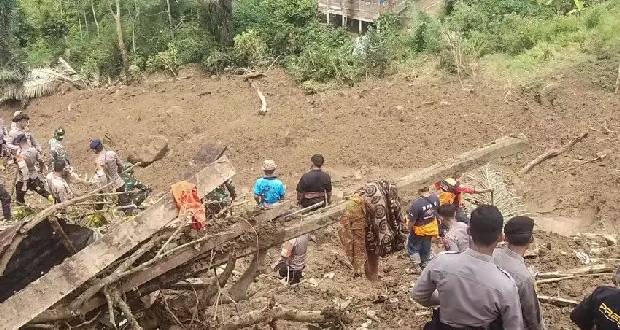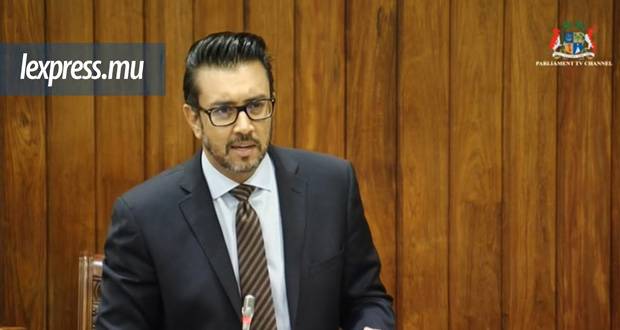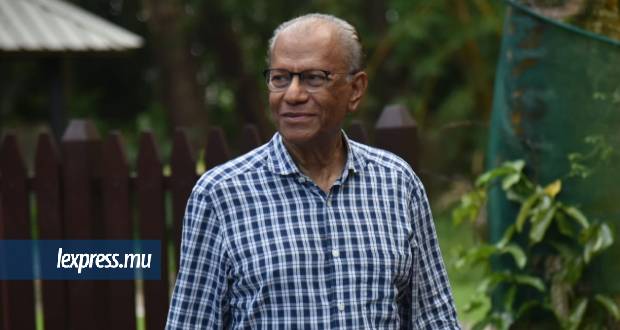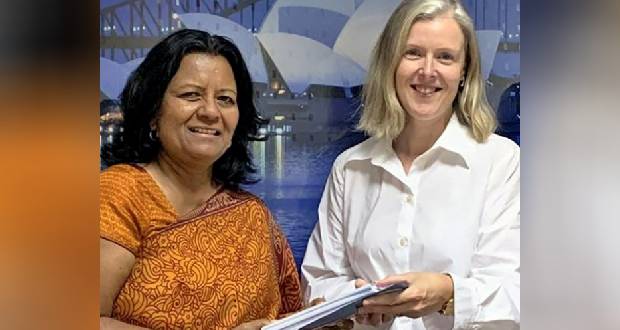Publicité
Professor Narsinghen sees Mauritius less democratic than Zimbabwe in certain areas
Par
Partager cet article
Professor Narsinghen sees Mauritius less democratic than Zimbabwe in certain areas
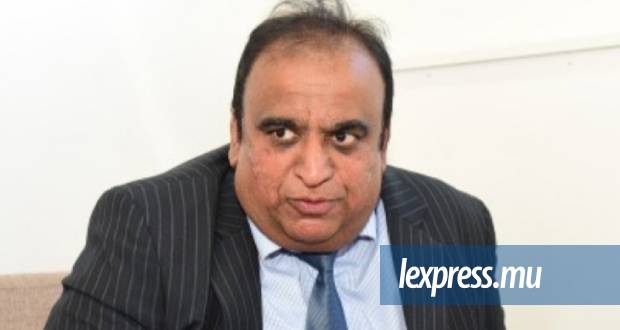
Professor Rajen Narsinghen shares his views on our democratic system, as the world celebrates this 15 September the International Day of Democracy. The Human Rights expert is worried about the attacks against our Democracy and goes on to explain that in some domains, Mauritius has become worse than Zimbabwe...
Professor Narsinghen has been interviewed by l’express in the context of the International Day of Democracy:
The unprecedented Covid-19 has resulted in major social, political and legal challenges globally and locally. Is Democracy in danger today?
It is true that Covid 19 has brought unprecedented challenges globally and inevitably in Mauritius.
While the world should have witnessed more solidarity and transparency, some unscrupulous leaders have seized this pandemic which has spread fear, uncertainty, and panic, as an opportunity to oppress.
Fortunately not in all countries, but where the peril of oppression and threat to our democracy was looming around, the breach has accelerated.
The pandemic will make many countries ungovernable, with unprecedented economic and social crises. Anticipating this, many Govts started to tighten their laws to trample on principles of democracy. This has happened in many African States and even in Europe. For example in UK, the principle of transparency has been breached.
In Mauritius we have witnessed a blow to our democracy.
It is true that all Govts, have breached democracy and human rights in one way or the other. But in Mauritius, the magnitude of the breach is unprecedented. From our being the No 1 in Africa in terms of democracy, good governance, and human rights, we have backslided. In some areas, we are worse than countries like Zimbabwe and the Congo.
Corruption also has surged in a phenomenal way. Corruption impacts on democracy and human rights. The more corrupt a Govt, the more attempts to suppress the voice of opponents.
There had been a slow but dangerous onslaught on democracy from 2014 to 2019. We have seen a total control on the police, illegal arrests, ill treatment of prisoners, police brutality, arrest of political opponents without compliance with the rule of law and due process. Institutions like Police, ICAC, the Police Complaints Committee, the MBC, IBA, ICTA, are being subjected to the beck and call of Government.
Institutions like the Human rights Commission and courts have been quite timid to uphold human rights. While the judiciary is generally independent, it more often than not adopts a conservative approach. It is at times caught up in the web of procedures to the detriment of real justice, equity and natural justice.
It is high time for some members of the judiciary to have a complete rethinking regarding their role as guardian of the Constitution and upholding Articles 1 to 16 as enshrined in our Constitution.
During the pandemic, we have seen unprecedented attacks on the freedom of the press and of one radio with the cases of l’express and Top FM. We have seen how the press has been denied the right to ask questions and a systematic filtering of questions has been orchestrated. The MBC has been manipulating information.
Academic freedom too has been under attack. Such freedom has always been guaranteed for more than 50 years.
New laws have been passed, namely the Quarantine Act and Covid Act. In the one, the Prime Minister has been given wide discretionary powers to decide as to the existence of a pandemic or epidemic. This should been left to a National Scientific Committee.
Such overarching powers could be a threat to democracy and the organization of elections. Local Govt election can be postponed. General Election can be organized, without any right to organize political meetings or rallies, while Govt may make an abuse of the MBC.
The same act provides the possibility for police to enter the premises of a person without a warrant. This a breach of the Constitution namely Section 3 (c) of the Constitution.
The Covid Act also embodies a lot of anti-democratic provisions, especially where rights of workers have been trampled.
Another major concern is non-compliance with the principle of proportionality. Fines to the tune of Rs 50 000 onwards and in one case of more than Rs 200 000 are simply unacceptable in a democratic society.
We have seen also how Mauritians have been denied access to their own country. I have never seen such a measure anywhere in the world. It is a breach of section 12 of the Constitution and the principles of international conventions, including the International Covenant on Civil and Political Rights.
At one time, we were saying that Mauritius was drifting towards dictatorship. Now we are in a dictatorship amidst rampant corruption and even more dangerous is the surge of drug trafficking.
In spite of the calls from Mr. António Guterres, the Secretary-General of the United Nations, and Ms. Michelle Bachelet, High Commissioner of Human rights, to reconcile management of the pandemic with a strict adherence to democracy and human rights, we have seen the opposite happening in many countries, especially in Mauritius.
Why do we need a day, each 15 September, to celebrate Democracy?
A day dedicated to democracy is of paramount importance. The UN Secretary- General recalls how confronted with Covid 19, Govts must ensure free flow of information, participation in decision-making, governing by way of consensus and not by way of dictatorship and accountability.
Today, under the pretext of Covid, Govts have withered our democracy. Democracy is not a mere lofty ideal in political science or political philosophy, in the minds of illustrious philosophers like Plato, Locke, Rousseau, Montesquieu, Jefferson etc., but enshrined in Section 1 of our Constitution..
Our Supreme Court has explained clearly that Section 1 is not a mere preamble and the concept of Democracy is not a mere theoretical concept, but a concrete principle which Govt and institutions must adhere to. Cases of Ahnee vs. DPP and the Privy Council case of Matadeen vs. Pointu established the precedents. The case of State vs. Khoyratty explained also the multi facets of democracy and underscored the role of the Supreme Court to uphold democracy, which has to be impartial and independent.
In the wake of the pandemic, the remembrance of democracy is even more important. It will be a day to highlight its importance. Without democracy, other political rights, civil and human rights will not be meaningful.
Democracy is the mother of all other political, civil and human rights. Democracy provides an environment for the protection and effective realization of human rights.
The crisis raises the question how best to counter harmful speech while protecting freedom of expression. Sweeping curtailing of human rights and democratic principles to eliminate misinformation or disinformation should not result in purposeful or unintentional censorship.
Any exception when it comes to curtailing of any democratic principle or human rights should be done within the parameters of what is justifiable in a democratic society. So Govt cannot curtail our democratic and human rights if they are not justifiable in a democratic society. Govt cannot have a blank cheque to trample on human rights. So the Supreme Court has a crucial role to play and so has the Privy Council.
So the day dedicated to democracy will raise more awareness about this important principle. It will also be deterrent for those who intend to breach principles of democracy and human rights.
What we are witnessing those days, is it the start of the Mauritian Spring?
It is too early to say that we are on the eve of a sort of Arab Spring.
Up to now we have had a very docile public opinion. For the first time we are seeing a strong public opinion. The people demonstrating come from diverse horizons, in terms of political parties, NGOs, trade unions etc.
However, in spite of diverse interests, there is not yet a common stand on multiple issues. One common stance irrespective of ideology or opinions is the wish to have fresh elections. It is unanimous amongst those participating in protest march. I think it is justified.
After Covid-19, Wakashio, loss of lives at sea for three Mauritians, a string of unprecedented alleged scandals, it is important for any new Govt to have a new Social Contract.
The mass protest is a wake-up call to all politicians and future ones, especially from mainstream political parties. The mass protest called by Bruneau Laurette is symbolical, but a turning point. It cannot be business as usual. If the mainstream political parties do not change their way of doing politics, then a sort of Arab Spring may come sooner than later.
Publicité
Les plus récents
